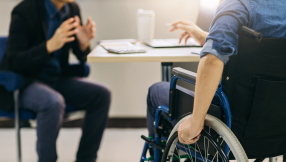Evangelical Alliance Urges Caution as British Scientists Prepare Three Parent Embryo
|PIC1|
The Human Fertilisation and Embryology last week uplifted its ban on the controversial proposal from scientists working at the University of Newcastle.
Pro-life groups immediately condemned the proposal, and expressed that it amounted to using unborn babies as fodder for experiments.
The scientists plan to transfer the genetic make-up created from a fused egg and sperm into that of a second woman’s egg, thereby using three separate parents to create the final egg.
British Scientists have defended the works saying that it would carried out to investigate how to prevent various debilitating genetic diseases being passed onto a child from their mother. Such diseases, known as mitochondrial diseases, are brought about from the DNA found outside the nucleus, and so are inherited separately from the DNA found within the nucleus.
Although not technically cloning, the team promoting this project drive has been accused of using ‘cloning’ techniques.
The Evangelical Alliance’s Head of Public Affairs, Dr Don Horrocks stated, “Yet again we see supposed, but unproven, therapeutic benefits trumping deep ethical concerns. This is a massively controversial area in which unchartered territory is being entered involving experimentation with unborn children – all without apparent regulation or accountability.
“No one would guess that the HFEA is currently the subject of a Government consultation to examine the controversial issues surrounding embryo research. We should be waiting for the results of this consultation, before pressing ahead regardless.”
|TOP|
Campaign group, Life’s Matthew O’Gorman reported, “There is no satisfactory reason for using human beings as research material. Cloning techniques have been rejected by the vast majority of countries in the world as well as the European Union and the United Nations.”
However, researcher Professor John Burn told that technically the method used would not led to ‘designer babies’ as the embryo would be destroyed after just 14 days.
Burn said, “I would use the analogy of replacing the battery in a pocket radio to explain what we are doing. You are not altering the radio at all – just giving it a new power source.”
Scientists have tried to calm fears by stating that the resulting egg would never be allowed to develop into a baby, and that even if it did, the offspring would still resemble their mother and father because the extra DNA taken from the third parent, the mitochondrial DNA, does not dictate things like hair colour.
Josephine Quintavalle from Comment on Reproductive Ethics told the BBC that she was horrified with the development, “This shows once again that the HFEA does not have any regard for public consultation and the views of the public. It is undesirable to create children in this way. It will shock the world. This is playing around with early human life.”
The EAUK’s Dr Horrocks concluded, “When we hear of supposedly responsible scientists arrogantly refusing to see any moral problems with children being born to two mothers it becomes apparent that a sense of control and accountability is missing. The views of the public and the rights of the unborn child are being completely ignored in the interests of scientific research and uncertain future therapeutic benefits.”













